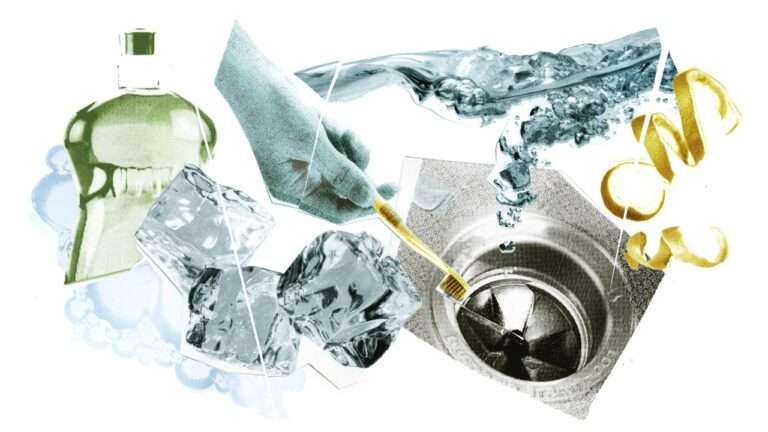How to Clean a TV Screen in 6 Steps Without Damaging It | Architectural Digest
The television screen is what everyone sees first, but don’t forget these other key areas, not to mention the area around your unit. “It can also help to clean the furniture and carpets around the TV to prevent dust and hair from getting into it,” says Williams.
The remote control is handled regularly. This is the one time when harsh chemicals can be used sparingly. Follow the manufacturer owner’s manual instructions first, but if sanitizing is needed, use a cleaner that’s at least 70 percent alcohol, according to the Centers for Disease Control (CDC) recommendations. (Basic drugstore isopropyl alcohol works well for this.)
Start the remote control cleaning by removing the batteries. As with the TV screen recommendations, you’ll want to avoid spraying directly onto the surface, as this could cause the device to malfunction. Dampen a clean microfiber cloth and rub gently on the top and the underside of the remote control. For hard-to-reach gunk that’s jammed between the buttons, try a cotton swab dipped in a small amount of the cleaning solution. Make sure to let it dry thoroughly before replacing the batteries and using it again.
What is the safest thing to clean a flat-screen TV with?
When figuring out how to clean a TV screen, selecting the safest cleaning solution is key, but it’s also important to know what cleaning products to avoid. Keep in mind that not only should you skip cleaning with certain products, you should also avoid spraying them in close proximity to the TV.
Both Panasonic and Samsung both have lengthy “avoid” lists that include harsh chemicals such as wax, cleaning fluid, acetone, benzene, alcohol, thinner, mosquito repellent and insect spray (really!), lubricant, solvent and undiluted mild dish soap. These can, as Williams says, “cause clouding and can wear away your TV’s anti-glare coating.”
In terms of what to use, Samsung recommends “monitor cleaner only” (also called TV screen cleaner). Panasonic suggests “one part mild liquid dish soap diluted by 100 times the amount of water.” To make this cleaning solution, add a scant teaspoon of liquid dish soap to two cups of water, stirring well to dissolve.
Williams likes TV cleaning kits for their ease of use. “A TV kit will be your safest option for cleaning a TV,” he says. “These kits will come with everything you need to get your TV looking new, like screen-cleaning solvent and a fast-drying microfiber cloth.” You can find TV cleaning kits and cleaning products designed for flat-screen TVs at electronics stores or on Amazon.
Some people swear that only distilled water is useful as cleaning spray for their delicate electronics. Although Williams does not necessarily recommend using distilled water, if you know for a fact you have hard water in your area, you may want to try the distilled water route and see if you notice a difference. Hard water, which has high levels of calcium and magnesium, may leave a film or residue when it’s used for cleaning. Before you spray water to clean TV screens, try experimenting with tap water on a less-important screen, like an old cell phone, to assess the results.
Can I use Windex on my TV screen?
If you can picture the hulking tube TVs (also known as CRTVs) of yore, you may also remember how delightfully easy they were to clean—a few spritzes of window cleaner and some wipes with paper towels and you were good to go—no special microfiber cloth required. But modern TVs with fancier technologies like LCD, OLED, and plasma call for gentler techniques. “Avoid using chemicals like alcohol, ammonia or acetones when cleaning your TV. These cleaners were safe to use for previous generations of TVs with glass panels, but as the hardware changes with time, the cleaning methods do too,” says Williams. Since some multi-purpose and glass cleaners are made with ammonia, skip the Windex.
How do you clean a smart TV screen?
Modern TVs are often smart TVs but the cleaning tips are the same as the ones for LCD, OLED and plasma TVs. The microfiber cloth is your TV screen’s best friend. “The majority of TVs you purchase today will be smart TVs, and the cleaning process is the same as TVs without smart capabilities,” Williams says.



